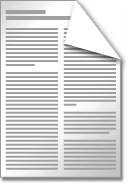Indispensable allies: US, NATO and UK Defence relations

Fachexperte(n): Martin Zapfe
Journaltitel: House of Commons Defence Committee
Publikationsjahr: 2018
NATO is the cornerstone of UK defence. The 2018 NATO summit is taking place against a backdrop of increasing political uncertainty and potential military threat. As in previous times of danger, the UK Government must work with allies to ensure the country’s security. NATO has responded to the change in threat following the annexation of Crimea by Russia, but there is more to be done. The UK is a major contributor to NATO and therefore one of the guarantors of overall European security.
In this Report we examine the UK’s priorities for the forthcoming NATO summit and determine how the UK can provide further support to NATO in improving its response to the deterioration in relations with Russia.
We also examine the UK-US bilateral relationship, taking particular note of the impact both of the UK-US relationship on NATO, and the UK’s NATO role on our engagement with the US. The evidence is clear that the UK-US military-to-military relationship is central to our wider bilateral relationship. That relationship, based on interoperability,
shared interests and a similar analysis of threats, is not an accident but a product of sustained investment, including in personnel and equipment. It is also vital to the functioning of NATO. Finally, we examine the pivotal role played by the US in NATO, both as an irreplaceable security guarantor and as a driver of modernisation. Throughout this inquiry it has become clear to us that, if the UK wishes to maintain its leadership position in NATO and to continue such fruitful defence relations with the United States, then it will have to invest more in its Armed Forces. Analysis we
commissioned has demonstrated that at current spending levels, the Ministry of Defence will not be able to maintain UK military capacity and capability. Diminished capacity reduces the UK’s usefulness to the US and our influence within NATO. The Government must not allow this to happen.